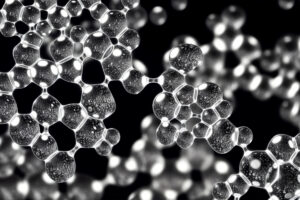Is drinking soft water healthy? Expert opinions and research

Have you ever wondered about the difference between soft water and hard water? With so many water options available, it’s important to understand how they can impact our health. Soft water, as compared to hard water, contains relatively low levels of minerals such as calcium and magnesium.
The preference for either soft or hard water varies from person to person. Some individuals choose soft water due to its unique qualities, while others opt for the mineral-rich composition in hard water. Both types have their advantages and disadvantages when it comes to everyday use – especially when considering drinking preferences.
In this article, we’ll delve into the debate surrounding drinking soft water: Is it healthy or not? We will explore expert opinions on the safety of consuming soft water versus hard water along with uncovering recommended daily intake amounts of drinking – both containing various mineral profiles. So hold tight and let’s dive into a refreshing exploration of drinking!
Is it safe to drink soft water?
When it comes to drinking softened tap/faucet/municipal supply waters, there are some potential health concerns and benefits to consider. Soft water is treated to remove minerals like calcium and magnesium, resulting in a lower mineral content compared to hard water. While this may be desirable for preventing buildup in plumbing systems, it raises questions about the impact on our overall health.
One possible concern with consuming soft water is its potential contribution to dietary mineral deficiencies. Calcium and magnesium play crucial roles in various bodily functions, such as bone health and muscle function. Some studies suggest that drinking soft water might lead to decreased intake of these essential minerals, especially if your diet does not provide sufficient amounts. However, the extent of this effect may depend on other sources of calcium and magnesium in your daily meals.
On the other hand, certain individuals with specific health conditions might benefit from drinking soft water. For example, people with kidney stones or urinary tract issues might be advised by healthcare professionals to consume low-mineral diets or avoid hard tap/faucet/municipal supply waters rich in calcium oxalate crystals implicated in stone formation.
While there are varying opinions on whether soft water consumption has significant adverse effects on our health or provides any notable benefits beyond addressing specific medical conditions, one thing remains clear – maintaining a balanced diet that includes varied sources of essential minerals is key for overall well-being regardless of the type of tap/faucet/municipal supply waters consumed. Regular consultations with healthcare providers should guide decisions regarding individual dietary requirements based on personal circumstances.
What is hard water?
Hard water refers to the tap or municipal water supply that contains high levels of minerals, specifically calcium and magnesium ions. These minerals primarily make their way into the water by leaching from surrounding rocks and soil as it flows through lakes, rivers, and aquifers. The hardness of water varies depending on geographical location, with some areas having significantly higher mineral content than others.
When hard water is left untreated, it can leave behind unsightly mineral deposits on fixtures and appliances, such as faucets and kettles. It can also create a residue in pipes that may lead to reduced flow over time. As a result, many households opt for treating their hard water to soften it before use.
The process of making water soft
There are several methods commonly used to soften hard water. One common approach is ion exchange, where resin beads are used to remove calcium and magnesium ions in exchange for sodium or potassium ions. Another method called reverse osmosis involves passing the hard water through a semi-permeable membrane that filters out the minerals.
These processes effectively reduce the mineral content in the water while making it softer and more manageable for household use. However, one important consideration when discussing softening techniques is how they impact not only the taste but also potential health benefits associated with consuming these essential minerals found in hard water.
Overall daily intake requirements
While some people argue that drinking soft (treated) water lacks essential benefits due to diminished mineral content compared to its harder counterpart; others maintain that we already receive sufficient minerals through our regular diet..
Recommended daily intake of Water for Adults
In order to maintain optimal hydration levels, it is important for adults to consume an adequate amount of fluids each day. According to the National Academies of Sciences, Engineering, and Medicine (NASEM), the general recommendation for adult men is about 3.7 liters (or around thirteen 8-ounce cups) of total water intake per day. For adult women, the recommended amount is slightly lower at about 2.7 liters (or around nine 8-ounce cups) per day.
It’s worth noting that this includes all sources of water, including beverages and foods that contribute towards overall fluid intake. While water is always a reliable choice for hydration, other beverages such as tea, coffee, milk, and even low-sugar fruit juices can also count towards your daily fluid needs. Additionally, certain hydrating foods like fruits with high water content (such as watermelon or cucumber) can help you stay hydrated too.
Meeting these recommended goals may vary depending on factors such as individual exercise levels, climate conditions in your region or any specific dietary requirements you might have be advised by healthcare professionals eq.specialists/dietitians hence being aware + monitoring your own body signals accordingly is ultimately best practice when staying properly hydrated
Recommended daily intake of water for children
It is well-known that proper hydration is vital for growing children. The recommended daily intake of water can vary based on age groups, ensuring adequate hydration for their specific needs. For infants and toddlers (0-3 years old), it is generally advised to provide them with around 700-800 milliliters (ml) of fluids per day. This includes water, breast milk or formula, and other beverages like diluted fruit juices.
As children transition into the preschool years (4-8 years old), their recommended daily fluid intake increases slightly to about 1-1.3 liters (or 1000-1300 ml) per day. Alongside regular meals and snacks, this should primarily come from drinking water but may also include milk and other healthy beverages.
As children enter pre-adolescence (9-13 years old), their hydration requirements further increase to approximately 1.7 liters (or 1700 ml) per day for girls and around 2 liters (or 2000 ml) per day for boys. It’s important to note that these recommendations are general guidelines and individual variations in activity level, climate conditions, and overall health must be taken into account when determining specific fluid needs for each child.
Maintaining proper hydration throughout childhood has lasting benefits on overall health, physical development, cognitive function, energy levels, sleep quality, and more. Promoting a habit of regularly drinking water ensures optimal wellness at every stage of growth.
Mineral content in recommended drinking water
When it comes to the mineral content of drinking water, there are several essential minerals that are often present in good-quality tap or municipal supply waters. These minerals are not only desirable but also considered healthy for our bodies. Calcium is one such mineral commonly found in drinking water. It plays a vital role in maintaining strong bones and teeth, as well as regulating muscle function.
Magnesium is another essential mineral that can be found naturally occurring in drinking water sources. This mineral has been associated with various health benefits, including improved energy levels, better sleep quality, and reduced risk of heart disease.
Other important minerals that may be present in recommended drinking water include potassium, fluoride, and sodium. Potassium helps maintain normal blood pressure and supports proper nerve function. Fluoride contributes to dental health by preventing tooth decay when consumed at optimal levels. Sodium is necessary for fluid balance and muscle contractions, among other bodily functions.
It’s worth noting that the presence of these minerals can vary depending on geographic location and the source of your drinking water. Regulatory authorities such as the World Health Organization (WHO) or Environmental Protection Agency (EPA) have established benchmarks or standards to ensure safe levels of these minerals in drinking water supplies.
While it’s generally beneficial to obtain essential minerals from various dietary sources like fruits and vegetables, having them naturally present in your drinking water can contribute to your overall nutrient intake without much effort.
Conclusion
In conclusion, the safety of consuming soft water largely depends on the source and treatment process. While some studies suggest that drinking soft water may contribute to mineral deficiencies, it is important to note that these deficiencies can be easily compensated for through a balanced diet. Additionally, many regions have strict regulations in place to ensure the quality and safety of drinking water.
Regardless of whether you choose to consume soft or hard water, maintaining regular hydration is crucial for overall health. The recommended daily intake of water varies depending on factors such as age, sex, activity level, and climate but generally falls within 2-3 liters for adults and 1-2 liters for children. It’s essential to listen to your body’s signals and drink enough water throughout the day.
Remember that maintaining proper hydration goes beyond just the type of water you consume; it also involves incorporating a variety of fluids like herbal tea or freshly squeezed fruit juices into your routine. By staying informed about your local water supply’s composition and following recommended guidelines for daily hydration levels, you can make smart choices about how much and what kind of water you drink while prioritizing your health.
By adopting healthy lifestyle habits like regular exercise combined with adequate hydration from safe sources such as tap or bottled mineralized waters when necessary, individuals can support their overall well-being in combination with a varied diet filled with nutrient-rich foods.

